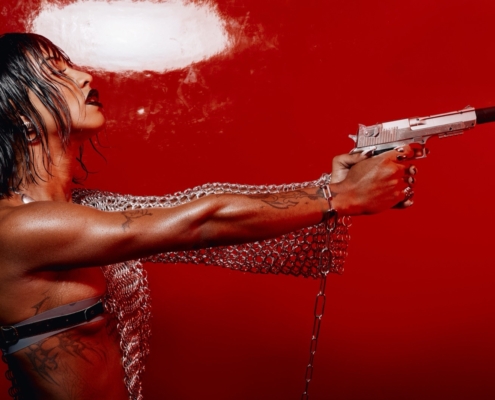You started with piano and bass before shifting into electronic music. What pulled you toward techno specifically?
Music has always played a big role in my life since I was young. I’ve performed in front of audiences with every instrument I’ve played, and there was always music playing at home growing up. There wasn’t anything specific pushing me toward electronic music, it just became a natural interest as I got older. The real turning point was (and still is) the club. Before my sets, I like to walk around, dance a bit, feel the vibe, and I always think, “THIS is my happy place.” I guess doing this as a job is just my way of holding on to that feeling for as long as possible.
Your sound hits hard but stays introspective—do you see it evolving in a specific direction, or is it more about capturing a moment?
I don’t plan much when I sit down in the studio or open my laptop, and honestly, it’s not always techno. Most of what I create never sees the light (yet maybe someday it will). What does come out usually depends on what a label is looking for, but it’s often club music to keep a steady release flow between bigger projects. These days, releasing music regularly is key to staying present in the scene. There are so many amazing producers out there, which naturally creates a bit of competition, if i may say, It also means you need to invest more of yourself. I see it as a healthy dynamic that pushes the whole scene forward.
You co-founded Péché Mignon, then Maison Close. What pushed you to start your own labels, and what’s your approach to curating artists for Maison Close?
When I started Péché Mignon with friends, I had just graduated and had no idea I’d end up doing this for a living. Growing up, we had a group of creative friends from different backgrounds and wanted to put all that energy into one project. It felt a bit naive and unprofessional, but it was a great “warm-up”. When I entered the industry five years ago, that first experience really helped. With Maison Close, the goal has always been to spotlight the emerging scene and local talents, aiming to showcase fresh sounds and build a unique identity, not stick to one genre. I’m excited about what’s coming and want to go even deeper with it.
Your Italian heritage shapes your fashion choices—especially your collab with La Maskarade. How does style feed into your artistic identity?
Honestly, I’m not super involved, I’m just excited about it. I haven’t really explored much of my Italian roots, but I do feel drawn to them. La Maskarade is a great example. The brand was created by people who mean a lot to me, so by extension, the clothes means a lot too. If you loved something deeply, wouldn’t you want to wear it all the time? It might sound silly, but I’m mostly shaped by the people around me. I’m lucky to be surrounded by artists I admire across many disciplines.








